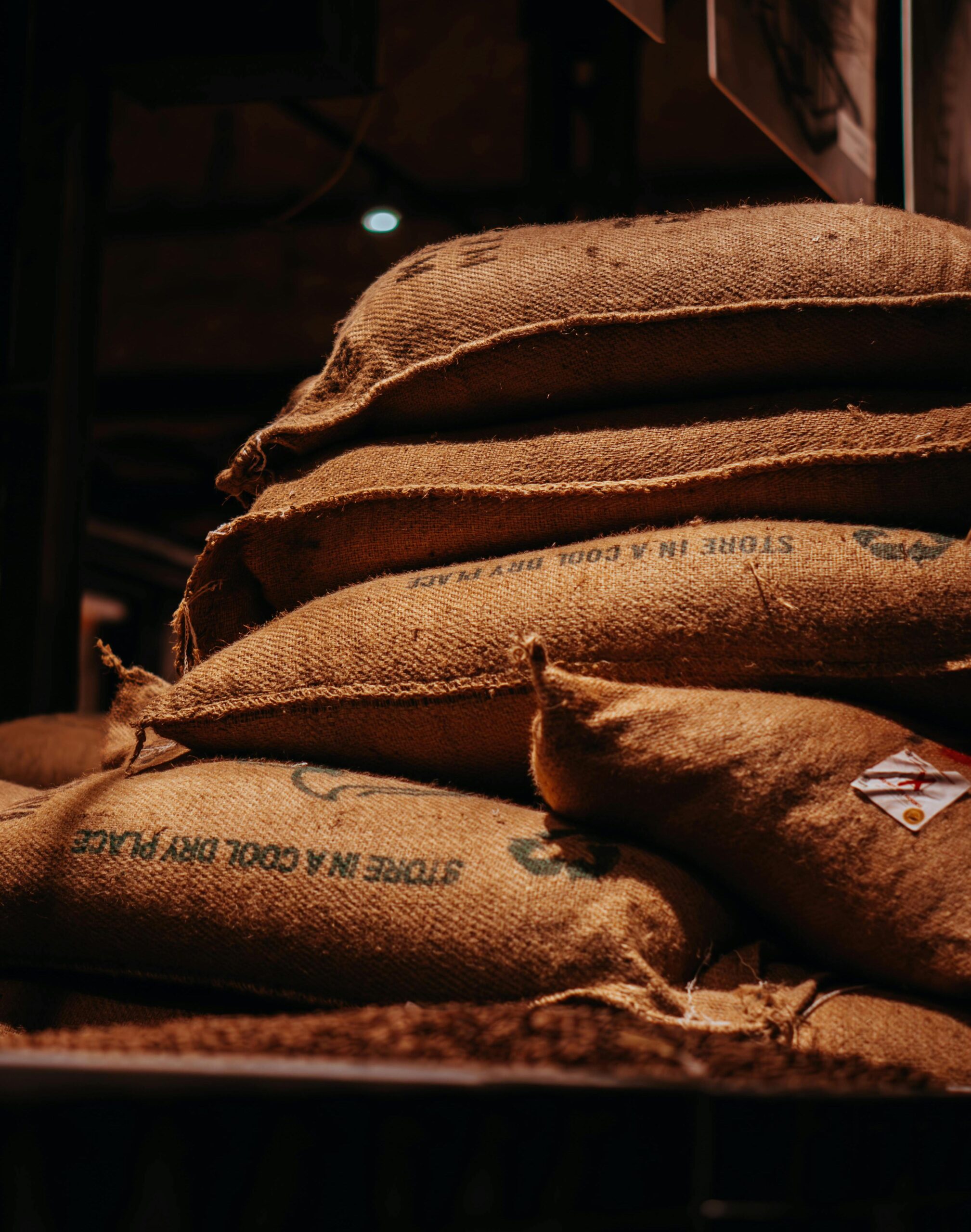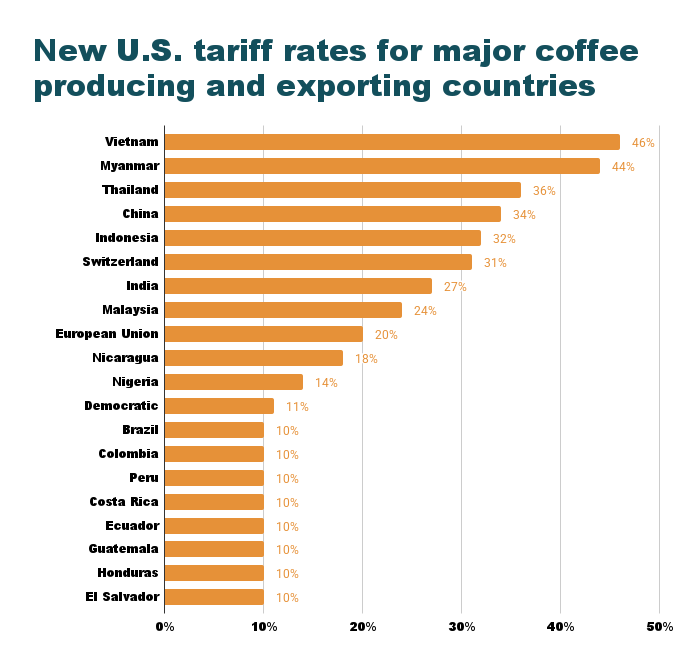United States President Donald Trump announced his “Liberation Day” tariffs yesterday, including new fees between 10% and 46% on imports from 15 of the world’s top 20 coffee-producing countries.
Outside of Hawaii, which produces less than one-tenth of one percent of the world’s coffee, the United States relies on green coffee imports to support its multibillion-dollar coffee industry.
While U.S. green coffee traders and roasters are already feeling the effects of a period of nominally high coffee prices on the New York arabica futures market — a.k.a. the “C Price” — they must now prepare to cover even pricier costs of goods, with many of the world’s top producing countries facing stiffer import costs.
The National Coffee Association (NCA) of the United States has previously called for coffee to be exempted from new tariffs.
“Every dollar of coffee-related imports generates $43 in value for the American economy, and coffee supports 2.2 million U.S. jobs, all while being America’s favorite beverage,” NCA President William “Bill” Murray said in a statement to DCN this morning. “Since coffee beans cannot be grown in most of the United States, trade policies should take into account the essential role of coffee trade in Americans’ daily lives and in the U.S. economy, to ensure that Americans don’t face even higher coffee prices amid the current cost of living crisis.”
Yannis Apostolopoulos, the CEO of the Specialty Coffee Association said that the tariffs are likely to heighten existing price volatility affecting both producers and consumers “for the foreseeable future.”
“For decades, coffee value chain actors have been affected by price volatility driven by climate change and myriad sociopolitical factors,” Apostolopoulos said in a statement to DCN. “This volatility has been exacerbated by the introduction of new tariffs, which have implications for the global economy.”
Daily Coffee News will have much more in the coming days and weeks as this story unfolds.
For now, here is a visual overview new tariff rates on major coffee-producing countries:
Key observations from the above diagram include new tariffs on the world’s four largest coffee-producing countries by volume of arabica and robusta combined — Brazil, Vietnam, Colombia and Indonesia — all key coffee suppliers to the U.S.
Any large-scale impact to the Brazilian coffee sector — in this case, a 10% increased cost to U.S. buyers — tends to have far-reaching implications on the global market.
The 46% tariff increase to Vietnam — the world’s largest producer of the robusta coffee variety — is likely to dramatically reshape the robusta market in the U.S. and globally.
Also included above are the European Union (20%) and Switzerland (31%), the latter notably added for its prominent place in the global coffee trade due to its corporation-friendly taxation standards and regulations.
[Note: This story has been updated to include a comment from the CEO of the Specialty Coffee Association.]
Comments? Questions? News to share? Contact DCN’s editors here. For all the latest coffee industry news, subscribe to the DCN newsletter.
Nick Brown
Nick Brown is the editor of Daily Coffee News by Roast Magazine.








Comment